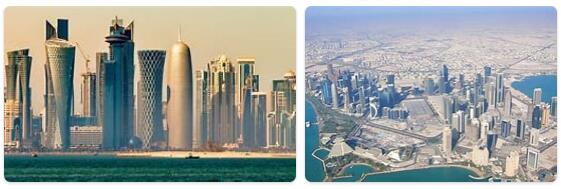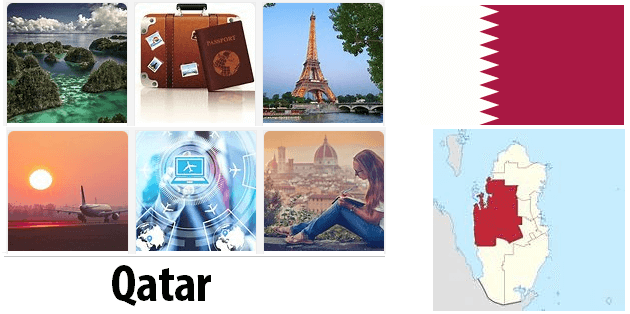
In 2015, the population of Qatar was estimated to be around 2.6 million people. The economy of Qatar was a rapidly developing market economy, and it had strong ties with other Middle Eastern countries as well as United States and Europe. It had a high level of foreign investments which contributed to its economic growth. Politically, Qatar was an absolute monarchy, where the ruling Al Thani family held executive powers. In 2015, Sheikh Tamim bin Hamad Al Thani served as Emir while Abdullah bin Nasser bin Khalifa Al Thani served as Prime Minister. The Qatari Parliament was composed of two chambers: Advisory Council and Shura Council. In terms of defence, Qatar had strong military ties with NATO which it joined in 2013 as part of its post-Cold War security policy. Qatar also maintained strong diplomatic relations with its neighboring countries in the Gulf region. See ehealthfacts for Qatar in the year of 2005.
Yearbook 2015

Qatar. A fiery conflict with Egypt re-emerged in February, when Cairo accused Qatar of supporting terrorism. The reason was Doha’s protests against an Egyptian air strike against jihadists in Libya. Qatar responded by temporarily calling its ambassador home. The contradictions had otherwise been muted after Qatar expressed its support for Egyptian President Abd al-Fattah al-Sisi after previously supporting his overthrowing representative Muhammad Mursi.
According to COUNTRYAAH, Doha is the capital of Qatar which is located in Western Asia. Qatar took part in an alliance led by Saudi Arabia, which launched a march against Yemen in March. The attacks were aimed at the Shiite Muslim skin movement that has occupied large parts of Yemen. In early September, mainly Qatar and Saudi Arabia also sent ground forces to the country to support troops loyal to the deposed President Abd al-Rahman Mansur al-Hadi.
- Also see AbbreviationFinder.org for Qatar country abbreviations, including geography, history, economy and politics.
The terms of the approximately 1.5 million guest workers in Qatar were again highlighted in a critical report from the ILO working organization. The UN agency found that the foreign workers were almost viable and had difficulty leaving the country or changing employers. The guest workers make up a large majority of the country’s residents.
A violent storm caused problems in November, when more rain fell in a few hours than it normally does in a year. Streets in Doha were submerged and many shops and schools were forced to close.

HISTORY
Independent since 1971, absolute monarchy, on the international level the Qatar has traditionally carried out a moderate policy, and in 1981 he formed the Gulf Cooperation Council together with Saudi Arabia, Baḥrein, United Arab Emirates, Kuwait and Oman.
Emir Šayh̠ H̠alīfa ibn Ḥamad Āl Ṯānī remained at the helm of the country until June 1995, when he was deposed in a bloodless coup by his son and heir to the throne, Šayh̠ Ḥamad ibn H̠alīfa Āl Ṯānī. Since the mid-1980s he had played an important role in the life of the country, promoting, as president of the Supreme Planning Council, a diversification of the production structure, aimed at decreasing the dependence of Qatar on oil revenues. A supporter of a modernization of the country also in the political sphere, the new emir agreed, in July 1999, to the formation of a commission charged with drafting a new constitutional text aimed at limiting the prerogatives of the absolute monarchy. In the international field the Qatar signed, between1992 and 1994, defensive agreements with the United States, Great Britain and France, and at the same time conducted a relatively independent foreign policy from Saudi Arabia. Relations with the latter, traditionally of close alliance, on the contrary suffered an evident deterioration due to a dispute over the demarcation of the borders, consisting of an agreement between the two states in April 1996. Relations with the Baḥrein also experienced difficulties, starting from the second half of the 1980s, in relation to a dispute over the demarcation of maritime borders; a standardization process was only started in the early months of 1997.